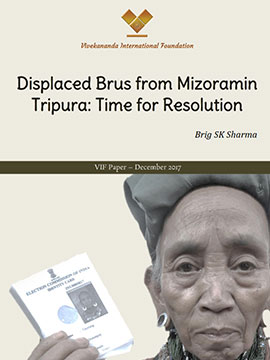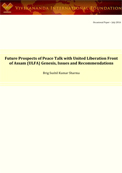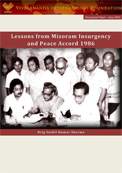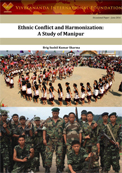Abstract History has been witness to the conflict-induced internal displacement of people in different states of Northeast India from time to time. While the issues of such displacement have been resolved in most of the North-eastern States, the displacement of Brus from Mizoram has remained unresolved even over past two decades. Over 35,000 Brus have been living in six makeshift relief camps in North Tripura's Kanchanpur, areas adjoining Mizoram under inhuman conditions since October 1997.
The insurgency by the United Liberation Front of Assam (ULFA) has petered out over the years but peace talks with the outfit's leadership has not progressed beyond a preliminary stage. What are the prospects of these negotiations? Will a recalcitrant leader of a faction play spoil sport? This paper explores the options. Click here to read full paper
There are a large numbers of militant groups involved in insurgent activities in Northeast India. Over the years, consequent to the perceived neglect, ethnic and identity insecurity, these groups have been sustaining their ideological struggle. However, with the emergence of multiple groups espousing to fight for the same segment of masses, these erstwhile ideological struggles have mostly degenerated into an economic opportunism. Irrespective of the group, the major source of income happens to be through “Taxation and Extortion”.
Signed on 30 June 1986, between the Mizo National Front (MNF) and the Government of India, the Mizo Accord so far remains the only successful Peace Accord of its kind in independent India’s history. Click here to read full paper
Abstract Manipur is a melting pot of diverse cultures and ethnicities and has gradually evolved into a dynamic multicultural society. The Nagas, Kukis and Meiteis have shared common spaces and have been competing for the same land and other resources, since times immemorial, thereby leading to an ethnic conflict which has often manifested itself in violence and bias against each other. Click here to read full paper





